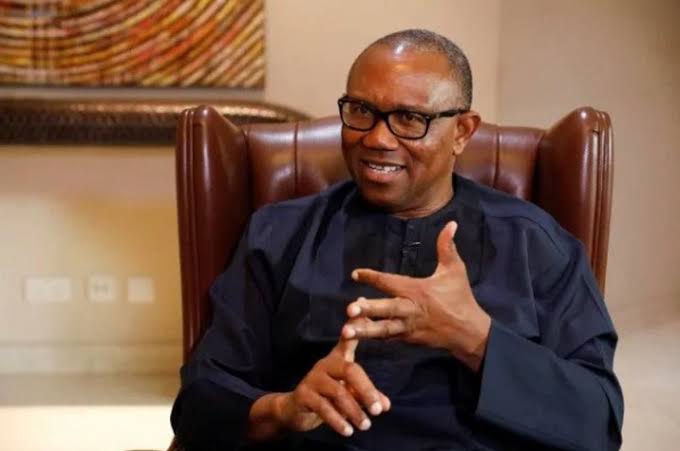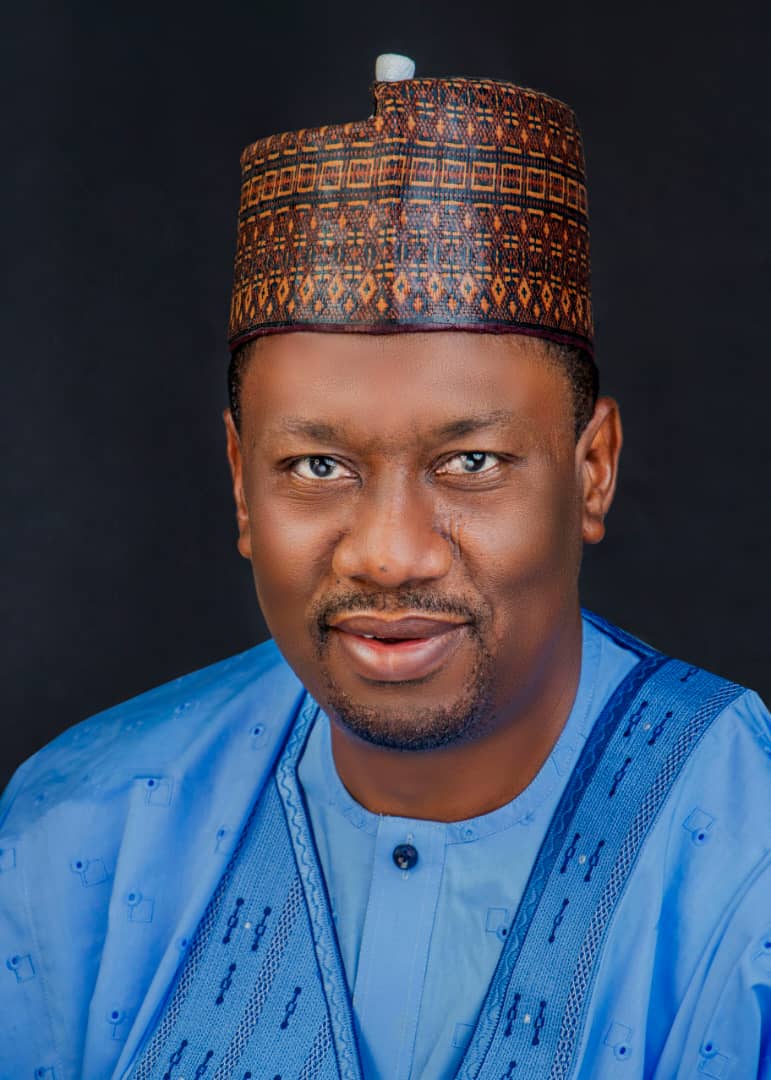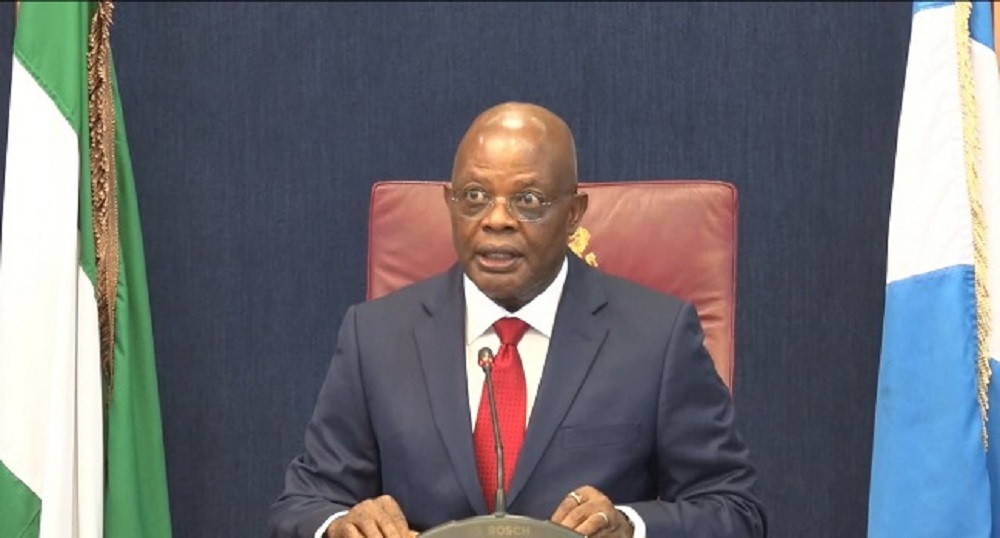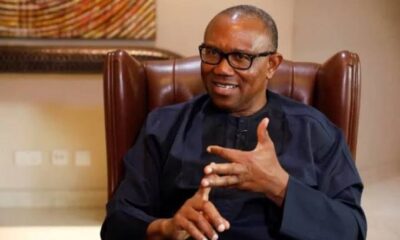News
Obi’s reaction on IBB’s confession shakes social media, says Nigeria is worse off, demands recognition of true election winners

Labour Party’s presidential candidate in the 2023 election, Peter Obi, has responded to former Nigerian Military President Ibrahim Badamasi Babangida’s (IBB) recent acknowledgment that the late Chief MKO Abiola won the June 12, 1993, presidential election.
Babangida made this earth shaking revelation during the launch of his autobiography, A Journey in Service, in Abuja on Thursday. Obi praised Babangida’s admission as a crucial step toward national healing and unity.
He also expressed hope that other key players in Nigeria’s democracy would have the courage to recognize the true winners of past elections.
In his speech during the book launch, Babangida admitted that the annulment of the June 12 election was a regrettable moment in Nigeria’s history.
He stated: “That accident of history is most regrettable. The nation is entitled to expect my impression of regret. As a leader of the military administration, I accept full responsibility for all decisions taken under my watch.”
Babangida’s acknowledgment of Abiola’s victory marks a significant departure from his previous stance and has reignited conversations about Nigeria’s democratic evolution.
Peter Obi’s Reflections Peter Obi, who attended the book launch, shared his reflections on the event through a post on his verified X (formerly Twitter) account. In his statement, Obi praised Babangida’s contributions to Nigeria’s economy and efforts to foster national cohesion during his tenure. “IBB’s contributions to Nigeria’s economy and his strong support for entrepreneurship and private sector growth remain immeasurable,” Obi wrote.
He highlighted Babangida’s role in promoting substantial growth in the financial sector and creating policies aimed at strengthening Nigeria’s economic and social fabric.
Key Takeaways from the Event Obi also shared two key takeaways from the event’s keynote address and Babangida’s comments:
Nigeria’s Development Compared to Peer Nations Obi reflected on a quote from the keynote speaker, “Rien n’a changé,” which translates to “Nothing much has changed.” In the case of Nigeria, we are worse off than we were during IBB’s era.
He observed that Nigeria has stagnated in terms of human development compared to peer countries like Bangladesh, India, Vietnam, and Ghana.“When IBB left office in 1992, these countries were in the low Human Development Index (HDI) category, just like Nigeria.
Today, they have advanced to medium and high HDI levels, while Nigeria remains in the low HDI category,” Obi lamented.
Democratic Transitions in Ghana vs. Nigeria Obi praised Ghana’s democratic progress over the past 30 years, noting that the country has experienced smooth leadership transitions that reflect the genuine votes of the people. He contrasted this with Nigeria’s history of disputed electoral outcomes.“In Ghana, ruling party candidates have conceded defeat, respecting democracy in its truest form. In Nigeria, electoral outcomes often fail to reflect the people’s will,” he added.
Babangida’s Admission and Its Significance One of the most profound moments of the event, according to Obi, was Babangida’s admission that MKO Abiola won the June 12 election. Obi described the acknowledgment as a step toward national healing and progress. “IBB’s admission is a step toward national healing, unity, and progress for our nation,” Obi stated. He emphasized that recognizing the truth about past elections is essential for Nigeria to move forward with honesty and reflection.
A Call for Recognition of Past Election Winners Obi expressed hope that other key players in Nigeria’s political history would also find the courage to acknowledge the true winners of past elections. He highlighted the importance of such admissions in promoting transparency, reconciliation, and trust in Nigeria’s democratic system.
“I hope that one day, other key players in Nigeria’s democracy will find the courage to recognize the true winners of past elections, allowing our nation to tell its story with honesty and reflection,” Obi stated. This call resonates with many Nigerians who have long demanded electoral reforms to ensure free, fair, and transparent elections that truly reflect the will of the people.
Historical Context: The June 12 Election and Its Fallout The June 12, 1993, presidential election is widely regarded as one of the freest and fairest elections in Nigeria’s history. MKO Abiola, the Social Democratic Party (SDP) candidate, was on the verge of being declared the winner when the election was annulled by the military government led by Babangida. This decision led to nationwide protests and unrest, as many Nigerians saw the annulment as a betrayal of democracy. Abiola, determined to claim his mandate, declared himself president in 1994.
This act resulted in his arrest and detention by the regime of General Sani Abacha, who took power after Babangida’s exit. Abiola died in detention on July 7, 1998, under mysterious circumstances, just weeks after Abacha’s sudden death. His passing remains a dark chapter in Nigeria’s democratic journey.
Impact of Babangida’s Admission Babangida’s admission that Abiola won the June 12 election has reignited discussions about Nigeria’s democratic development and the long-term consequences of the annulled election. It has also sparked renewed calls for justice and recognition of Abiola’s contributions to Nigeria’s democracy.
Many Nigerians see the admission as an opportunity for healing and reconciliation. However, some critics argue that the acknowledgment comes too late to provide meaningful justice for Abiola and his supporters.
REACTIONS
Public Reactions to Obi’s Statement Obi’s reflections and call for the recognition of past election winners have been met with widespread reactions across social media and political circles. Supporters praised his commitment to transparency and democratic ideals, while others criticized him for not offering more concrete proposals for electoral reform. One political analyst noted, “Obi’s statement is timely. Acknowledging historical truths is essential for healing and nation-building. However, actions must follow words if Nigeria is to truly move forward.”
Government Efforts to Honor June 12 and Abiola’s Legacy In 2018, then-President Muhammadu Buhari made a significant gesture by moving Nigeria’s Democracy Day from May 29 to June 12 in honor of Abiola. This move was seen as an official acknowledgment of Abiola’s victory and a step toward reconciling the injustices of the past. Buhari also posthumously awarded Abiola Nigeria’s highest national honor, the Grand Commander of the Federal Republic (GCFR), a title traditionally reserved for sitting presidents. This act was widely praised as a long-overdue recognition of Abiola’s contributions to Nigeria’s democratic struggle. The Road Ahead: Strengthening Nigeria’s Democracy Peter Obi’s call for the recognition of true election winners is a reflection of broader concerns about Nigeria’s electoral process.
While Babangida’s admission is a step towards historical truth, many believe that systemic reforms are necessary to prevent similar injustices in the future. To strengthen Nigeria’s democracy and ensure electoral transparency, several key actions must be taken:
1. Electoral Reforms Nigeria’s electoral system has been criticized for inconsistencies, fraud, and a lack of transparency. Experts argue that adopting more rigorous voting and result collation methods—such as electronic voting and real-time result transmission—will minimize irregularities.
2. Judicial Independence in Election Disputes A major challenge in Nigeria’s democracy is the perception that judicial rulings on election disputes are often influenced by political interests. Ensuring that the judiciary remains independent and impartial is crucial for upholding the true outcomes of elections.
3. Political Will to Uphold Democratic Principles For democracy to thrive, political leaders must prioritize the integrity of the electoral process over personal and party interests. The ability of incumbents to concede defeat when necessary, as seen in Ghana and other democratic nations, should become a norm in Nigeria.
4. Civic Education and Voter Awareness An informed electorate is essential for a functional democracy. Educating Nigerians about their voting rights, the electoral process, and the importance of active civic participation can help reduce voter apathy and increase public demand for free and fair elections.
5. Recognition and Compensation for Past Electoral Injustices .
Many political and human rights groups continue to push for official recognition of past electoral injustices. While the declaration of June 12 as Democracy Day was a step in the right direction, some believe that the Nigerian government should go further by issuing a formal apology and providing reparations to the families of those who lost their lives in the struggle for democracy.
News
Zed-Faith Foundation Donates Food, Medical Supplies to Orphanage, Elderly Homes in FCT

By Kayode Sanni-Arewa
In a bid to ease the impact of rising food prices and economic hardship, the Zed-Faith Foundation International has donated food items and medical supplies to Ark of Refuge Orphanage and Old People’s Home in Kado, Abuja.
The items were distributed over the weekend by representatives of the Foundation on behalf of its Founder and Chairman, Amb. Daniel Onyeka Newman, a UK-based Nigerian and Chief Executive Officer of SBI.
The Foundation’s Media Consultant, Amb. Victor Atewe, who led the delegation, said the donation was a personal initiative by the Chairman and not funded by government or external bodies.
“These items are intended to directly support the children and elderly, and we trust they will be used solely for that purpose,” Atewe said.
He added that the Foundation plans to continue its outreach efforts across the country, noting that the economic situation has made daily survival increasingly difficult for vulnerable groups.
The Foundation also used the occasion to urge the federal government to collaborate more with credible non-governmental organisations in supporting disadvantaged populations, especially as inflation and food insecurity worsen.
Speaking on behalf of the Country Representative, Mr. Chinnaya Dominic Chikwado, the Foundation’s Administrative Officer, Mr. Udodirim Okorie, called on well-meaning Nigerians to support charitable causes and contribute to alleviating the burden on those most affected by the country’s economic crisis.
Representatives of the Old People’s Home and Ark of Refuge Orphanage expressed appreciation for the gesture, describing it as timely and impactful. They noted that such support helps bridge the gap in essential services for the elderly and children in their care.
“This donation will go a long way in meeting our daily needs.”
“We thank the Foundation for its continued support, especially during such challenging times.”
“Even the smallest gesture makes a big difference to those who have no one else to turn to.”
“We hope others are inspired to follow suit and remember those most in need.”
News
May Day: Senator Manu celebrates with Nigerian workers

The Senator representing Taraba Central Senatorial District, Manu Haruna celebrates May Day with Nigerian workers in Taraba and across Nigeria.
Senator Manu in a congratulatory letter to all Nigerian workers said:
“Your labour towards building a virile nation shall never be in vain as you celebrate May Day today in Nigeria and across the globe.
The former Taraba State Deputy Governor acknowledged the invaluable contributions of workers across various sectors and emphasized their crucial role in driving the nation’s development and progress.
He encouraged continued solidarity among workers while advocating for better working conditions, fair wages, and enhanced opportunities.
News
Ibas Pledges Commitment to Workers’ Welfare

The Administrator of Rivers State, Retired Vice Admiral Ibok-Ete Ibas, has reaffirmed his commitment to improving the welfare of workers across the state.
This assurance was given during a meeting with the leadership of organised labour unions held at the Government House in Port Harcourt.
According to a statement issued by the Senior Special Adviser on Media to the Administrator, Hector Igbikiowubo, the meeting served as a platform for open and constructive dialogue on critical labour matters.
The statement outlined key areas of intervention currently being addressed by the government.
These, he said, included the timely payment of salaries and pensions, as well as the resolution of salary arrears, with approval already granted for the payment of newly employed workers at the Rivers State University Teaching Hospital and the judiciary.
Similarly, he said medical workers in the local government areas would receive their proper wages.
He said the minimum wage was being implemented for all local government employees across the state.
The administrator also noted that his administration was currently reviewing challenges related to the contributory pension scheme, ahead of the July 2025 implementation deadline.
Ibas disclosed that plans were underway to expand the fleet of intervention buses reintroduced to ease the transportation burden of workers.
On capacity building, the administrator announced that specialised leadership training for senior civil servants would begin within the next two weeks.
He also revealed that the government was actively considering the implementation of the N32,000 consequential pension adjustment, along with measures to clear outstanding gratuities owed to retirees.
While commending workers for their dedication to service, he called for continued collaboration with labour unions to ensure lasting industrial harmony in the state.
According to the statement, the State Chairman of the Nigeria Labour Congress (NLC), Alex Agwanwor, expressed appreciation to the administrator for the steps already taken to promote workers’ welfare.
Agwanwor also lauded the government’s openness to dialogue and pledged the sustained support and cooperation of labour unions in achieving shared goals.
Meanwhile the NLC has directed its members in the state to observe the International Workers’ Day as a peaceful rally, which is expected to be held within the premises of the union, involving all affiliate unions, and would focus on advocating for the restoration of democratic governance in the state.
-

 News14 hours ago
News14 hours agoA Chat with Janet Odio Okolo: A Mother’s Journey Raising a Child with Down Syndrome
-

 News21 hours ago
News21 hours agoAlleged money laundering: EFCC produces Aisha Achimugu in court
-

 News23 hours ago
News23 hours agoJUST IN: Major General Paul Ufuoma Omu Rtd, dies at 84
-

 News22 hours ago
News22 hours agoTinubu hails Dangote’s World Bank appointment
-

 News16 hours ago
News16 hours agoHon. Dennis Agbo Resigns From Labour Party
-

 News16 hours ago
News16 hours agoJust in: Osun PDP receives defectors from APC, others
-

 News20 hours ago
News20 hours agoCBN announces revised documentation requirements for PAPSS transactions
-

 News21 hours ago
News21 hours agoReps Set Stage for Nigeria’s First Legislative Conference on Renewable Energy


















